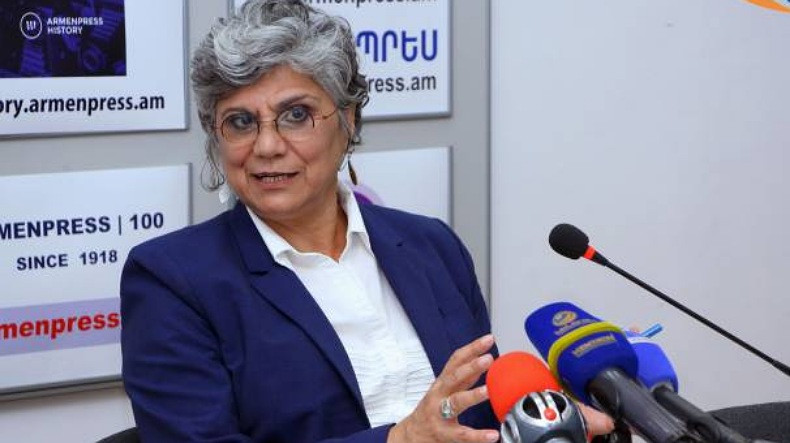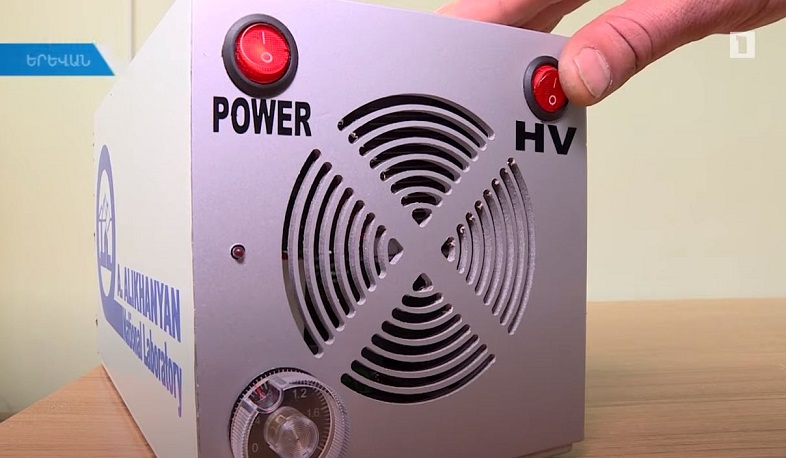
Working day and night, young Armenian scientists make 20 ozonators
Scientists at the A.I. Alikhanyan National Science Laboratory of the Yerevan Physics Institute have created 20 ozonators, which will replenish the Armenian medical centers upon the instruction of the Ministry of Health. The ozonator is designed for disinfection of closed areas, medical equipment, as well as instruments, clothing and masks.
Hooked up to a power source, the ozonator, in fact, purifies the air. Ozone itself is a dangerous molecule composed of three atoms of oxygen, but it disappears in 30 minutes, killing bacteria and viruses.
Speaking to Panorama.am, Ani Aprahamian, Director of the Alikhanyan National Science Laboratory, said that they are mainly engaged in fundamental science and have different ideas, which they are going to bring to life in the future. However, she said, taking into account the coronavirus crisis in the country, they decided to help Armenia fight the virus as much as possible and came up with a proposal to make ozonators.
"A US-based doctor sent me an e-mail saying that his uncle had once created an ozonator in Armenia and advised me to talk to him. I searched and found his uncle, who worked here and made an ozonator in the 1990s. I contacted him, the man visited the laboratory and showed me the machine he had made. I invited our young physicist-engineers. After examining it, we came to a conclusion that we could not make the same device, as it was made of glass and had pipes. We created a new design and tested it. We made it in three days,” she said.
In the director’s words, officials of the Ministry of Health liked the machine and told the laboratory scientists to make 20 ozonators for the ministry.
“Working day and night, our young physicist-engineers made 20 ozonators in a week and a half. They are pretty powerful, work well and look good,” Apramhamyan said.
The machines have been handed over to the Ministry of Health, which is to decide on how to use them. The technical description of the device is also available, she said.
The director of the scientific laboratory said that at first they wanted to provide a service to the ministry mainly making use of the materials at hand, but later there was a need to purchase materials that were not available at the laboratory. According to her, the Ministry of Health provided 880,000 drams to the lab to purchase the necessary materials.
In Aprahamian's words, if they decide to proceed with the production, they will determine the possible price of the device.
"I was very surprised that many people started to take an interest in this device; many want to buy it, particularly those engaged in manufacturing shoes, masks, etc. To tell the truth, we have not yet decided on the future of production,” Ani Aprahamian said.

Newsfeed
Videos






























